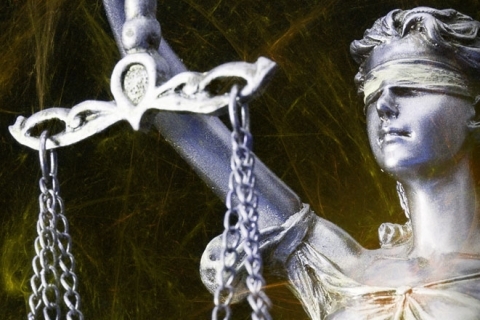Do I need to tell my Lawyer about my criminal history?

As a firm that handles employment law and personal injury law cases, Gold Star Law has a lot of clients with a wide variety of backgrounds. Some of our clients have criminal charges or convictions in their past, and understandably do not want those backgrounds to come up during their case. Occasionally, clients will try to hide criminal history from us, their own lawyers. More often, clients will tell us about their criminal backgrounds but want us to hide that information from the other side. If you are a party to a civil case, such as an employment law or personal injury case, and have a criminal background, do you need to tell your lawyer, and does your lawyer need to tell the other side?
The answer to the first question, whether you should tell your lawyer, is definitely yes. It is important to always be completely honest with a lawyer representing you for any type of case, so that your lawyer can know as much as possible and be prepared as possible to best handle whatever may arise in your case. This is true for personal injury and employment law. Even if you think your criminal past is irrelevant, tell your lawyer! Remember, things that you tell your lawyer as a part of your case are almost always covered by attorney-client privilege. This means that your lawyer cannot tell other people without your permission.
The next question we are frequently asked if whether you, through your lawyer, have to tell the other side about your criminal past. In the stage of litigation called “discovery,” the parties exchange information. People who are parties to lawsuits are routinely asked about their criminal backgrounds. For the most part, this is information that you should provide. There are a few reasons for this:
- Criminal records can usually be found, even if you do not provide them to the other side. Lawyers routinely perform background checks and look at court records to see what legal history a party has. Even if you don’t tell the other side about your criminal past, they will most likely find it on their own. (And this is one more reason to tell your own lawyer first- you certainly don’t want your lawyer to learn about your criminal record from the other side’s lawyer!)
- There is a difference between what information is “discoverable,” meaning it must be exchanged in the discovery stage if requested, and what is “admissible,” meaning it can be used in a hearing or trial. The scope of discovery is broad, meaning anything that could lead to finding admissible evidence can be discovered even if the information itself is not admissible. For something to be admissible, however, it must be relevant and it must be more probative than prejudicial (meaning its likeliness to help decide your case outweighs the possibility of it wrongfully influencing a judge or jury). There are also specific evidentiary rules about what types of criminal history can and cannot be presented to a jury. In most cases, unless your criminal history is very recent or directly tied to your case, it must be shared in discovery if requested but cannot be presented at trial.
- As said above, criminal history is usually discoverable even if it is not admissible, and can usually be found anyways. So, if you refuse to provide the information when asked, it creates more trouble than if you’d just disclosed it in the first place. Refusing to answer questions about your criminal past will make the other side wonder what you’re hiding. It may also lead them to file a motion to get the Court to order you to answer the questions, and you may have to pay a monetary penalty for making them go through the Court instead of answering the question honestly in the first place. Lying about a criminal past in discovery is even worse. In some situations, a criminal past that would have been non-admissible and never allowed to be presented in a trial can become admissible to an extent, as the other side can use your untruthful discovery answers to show your dishonesty.
Having a criminal past does not mean that you do not have a case! People with all sorts of backgrounds can still be paid improperly, can still be sexually harassed or discriminated against, and can still be injured in car accidents. The important thing is to be honest with your lawyers and follow their advice about when you should- and should not- disclose your criminal history.
If you believe you have an employment law or personal injury problem, regardless of your criminal history, contact us today.


